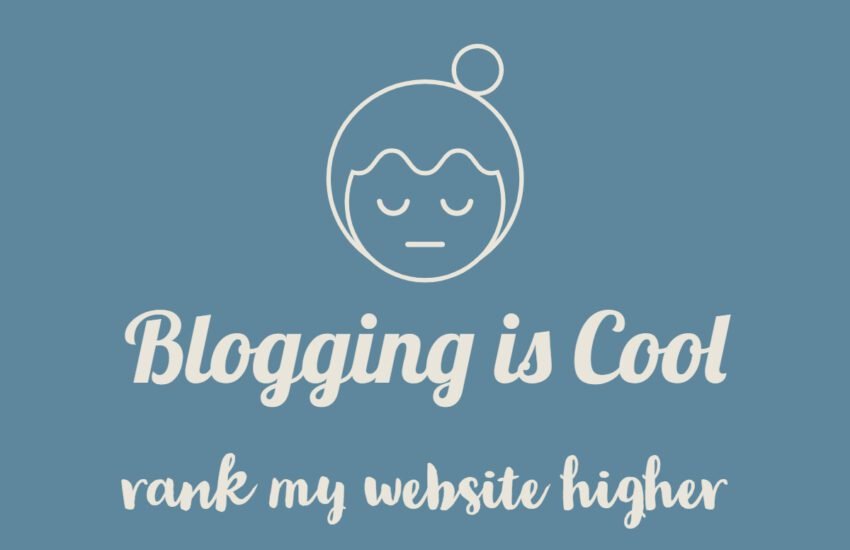How to Rank on Google: A Beginner’s Guide to Getting Noticed
Ranking on Google is crucial for any website or online business because it significantly impacts visibility, credibility, and ultimately, success.
- Is it Important to Rank on Google?
- How to Rank on Google
- Can you pay to Rank on Google?
- Conclusion
- Frequently Asked Questions
- 1. What is Google ranking, and why is it important for websites?
- 2. What factors influence a website’s ranking on Google?
- 3. How can website owners improve their website’s content to rank higher on Google?
- 4. What role do backlinks play in Google ranking, and how can website owners acquire high-quality backlinks?
- 5. What are some technical SEO elements that website owners should focus on to improve their Google ranking?
- 6. How can website owners leverage Google My Business to improve local search ranking?
- 7. What are some common mistakes to avoid when trying to rank on Google?
- 8. How long does it typically take for a website to rank on Google?
- 9. What are some effective strategies for improving Google ranking for new websites?
- 10. How can website owners track and measure their Google ranking performance?
Is it Important to Rank on Google?
Google dominates the search engine market, with billions of searches conducted every day. When your website ranks highly in Google search results, it means more people are likely to discover and visit your site. Increased visibility leads to more organic traffic, which can translate into higher sales, conversions, or achieving whatever goals you have for your website.
Additionally, ranking well on Google enhances your credibility and authority in your industry or niche. Users tend to trust websites that appear at the top of search results, viewing them as reliable sources of information or products.
As a result, ranking on Google not only drives traffic to your site but also helps to build trust and establish your brand as a reputable presence online.
In today’s digital age, where competition is fierce and attention spans are short, securing a top spot on Google can make all the difference in achieving your online objectives.
How to Rank on Google
Ranking on Google can seem like a daunting task, but with the right approach, it’s achievable for anyone.
In this guide, we’ll break down the key factors that contribute to ranking on Google and provide simple tips to help you get noticed.
Understanding Google’s Algorithm
Google uses a complex algorithm to determine the order in which websites appear in search results.
While the exact details of the algorithm are closely guarded secrets, there are several known factors that play a significant role in determining rankings.
Quality Content
One of the most important factors in ranking on Google is the quality of your content.
Google aims to provide users with the most relevant and useful information, so creating high-quality, informative content is essential.
Make sure your content is well-written, comprehensive, and addresses the needs and interests of your target audience.
Keywords
Keywords are words or phrases that users type into Google when searching for information.
Incorporating relevant keywords into your content can help Google understand what your website is about and improve your chances of ranking for those terms.
However, it’s essential to use keywords naturally and avoid “keyword stuffing,” which can hurt your rankings.
On-Page Optimization
On-page optimization involves optimizing various elements of your website, such as title tags, meta descriptions, headers, and image alt text, to make them more search engine-friendly.
By including relevant keywords in these elements and ensuring your website is well-structured and easy to navigate, you can improve your chances of ranking higher on Google.
Backlinks
Backlinks are links from other websites that point to your site.
Google sees backlinks as a vote of confidence in your content and website, so building a diverse and high-quality backlink profile is crucial for ranking well.
Focus on earning backlinks from reputable and relevant websites within your industry or niche.
Mobile-Friendliness
With the majority of internet users accessing the web from mobile devices, Google prioritizes mobile-friendly websites in its search results.
Make sure your website is optimized for mobile devices, with responsive design, fast loading times, and easy navigation on smaller screens.
Page Speed
Page speed refers to how quickly your website loads.
Google considers page speed to be an important ranking factor, as faster-loading websites provide a better user experience.
To improve your page speed, optimize images, minimize HTTP requests, and leverage browser caching.
User Experience
User experience (UX) encompasses various factors, including website design, navigation, and usability.
Google prioritizes websites that provide a positive user experience, so make sure your site is easy to use, visually appealing, and free of intrusive ads or pop-ups.
Regular Updates
Regularly updating your website with fresh content signals to Google that your site is active and relevant.
Consider publishing new blog posts, updating existing content, or adding new pages to keep your site fresh and engaging for users.
Can you pay to Rank on Google?
When it comes to ranking on Google, many businesses wonder if they can simply pay their way to the top.
While there are paid advertising options available, such as Google Ads, paying for organic search rankings is not possible.
Google’s search algorithm is designed to prioritize high-quality, relevant content that provides value to users.
Paid Content
Paid content refers to sponsored articles or blog posts that are created in collaboration with a brand or business.
These pieces of content are typically labeled as sponsored or advertorial and are meant to promote a product or service.
While paid content can help increase brand visibility and drive traffic to a website, it does not directly impact organic search rankings.
Paid Links
Paid links, also known as link buying or link schemes, involve paying other websites to include links to your site.
This practice is against Google’s guidelines and can result in penalties or a loss of organic search rankings.
Google values natural, organic links that are earned through high-quality content and genuine relationships with other websites.
Instead of relying on paid tactics to rank on Google, businesses should focus on creating valuable, informative content that meets the needs of their target audience.
This includes optimizing website content with relevant keywords, improving website usability and user experience, and building high-quality backlinks through outreach and relationship-building efforts.
Conclusion
Ranking on Google requires a combination of quality content, strategic optimization, and a focus on user experience.
By following the tips outlined in this guide and staying up-to-date with the latest best practices in SEO, you can improve your chances of ranking higher in Google search results and attracting more organic traffic to your website.
Remember that SEO is an ongoing process, so be patient and persistent in your efforts, and you’ll see results over time.
While paid advertising can be a valuable strategy to increase visibility and drive traffic, it is important to understand that it does not directly impact organic search rankings on Google.
To achieve long-term success in search engine optimization (SEO), businesses should invest in creating high-quality, valuable content that resonates with their target audience and follows best practices for SEO.
Frequently Asked Questions
1. What is Google ranking, and why is it important for websites?
Google ranking refers to the position at which a website appears in Google’s search engine results pages (SERPs) for specific search queries. Ranking high on Google is crucial for websites as it increases visibility, traffic, and potential conversions. Websites that rank higher are more likely to attract clicks from users, resulting in increased website traffic and potential business opportunities.
2. What factors influence a website’s ranking on Google?
Several factors influence a website’s ranking on Google, including:
– Content relevance and quality
– Website authority and backlink profile
– Page loading speed and user experience
– Mobile-friendliness and responsive design
– On-page optimization (e.g., title tags, meta descriptions, heading tags)
– Technical SEO elements (e.g., site structure, schema markup, XML sitemaps)
– User engagement metrics (e.g., click-through rate, bounce rate, dwell time)
3. How can website owners improve their website’s content to rank higher on Google?
Website owners can improve their website’s content to rank higher on Google by:
– Conducting keyword research to identify relevant and high-traffic keywords.
– Creating comprehensive, high-quality content that addresses user intent and provides value.
– Optimizing content with targeted keywords, headings, and meta tags.
– Formatting content for readability and user engagement (e.g., bullet points, images, videos).
– Updating and refreshing content regularly to keep it relevant and up-to-date.
4. What role do backlinks play in Google ranking, and how can website owners acquire high-quality backlinks?
Backlinks play a significant role in Google ranking as they signal trust, authority, and relevance to search engines. Website owners can acquire high-quality backlinks by:
– Creating valuable, shareable content that naturally attracts backlinks from other websites.
– Guest blogging on reputable websites in the same industry or niche.
– Building relationships with influencers, bloggers, and industry experts who can link back to your website.
– Submitting your website to relevant online directories and industry-specific listings.
– Monitoring and disavowing low-quality or spammy backlinks to maintain a clean backlink profile.
5. What are some technical SEO elements that website owners should focus on to improve their Google ranking?
Some technical SEO elements that website owners should focus on to improve their Google ranking include:
– Optimizing website speed and performance by minimizing server response time, leveraging browser caching, and compressing images.
– Implementing schema markup to provide search engines with additional context and metadata about website content.
– Ensuring mobile-friendliness and responsive design to provide a seamless user experience across all devices.
– Improving site structure and navigation to make it easier for search engines to crawl and index website pages.
– Fixing technical issues such as broken links, crawl errors, and duplicate content to improve website health and visibility.
6. How can website owners leverage Google My Business to improve local search ranking?
Website owners can leverage Google My Business (GMB) to improve local search ranking by:
– Claiming and verifying their business listing on Google My Business.
– Optimizing their GMB profile with accurate business information, including business name, address, phone number, and business hours.
– Encouraging customers to leave reviews and ratings on their GMB profile to enhance credibility and visibility.
– Adding photos and videos to showcase the business location, products, and services.
– Responding to customer reviews and inquiries promptly to demonstrate engagement and customer service.
7. What are some common mistakes to avoid when trying to rank on Google?
Some common mistakes to avoid when trying to rank on Google include:
– Keyword stuffing: Overusing keywords unnaturally in content in an attempt to manipulate search rankings.
– Ignoring mobile optimization: Neglecting to optimize websites for mobile devices, resulting in poor user experience and lower search rankings.
– Neglecting technical SEO: Ignoring technical issues such as broken links, slow loading times, and crawl errors that can negatively impact search rankings.
– Using black hat SEO tactics: Engaging in unethical or manipulative SEO practices such as buying backlinks or cloaking content, which can result in penalties and deindexing by search engines.
– Focusing solely on rankings: Obsessing over search rankings without considering user experience, engagement, and conversions, which are ultimately more important metrics for business success.
8. How long does it typically take for a website to rank on Google?
The time it takes for a website to rank on Google can vary depending on various factors, including the competitiveness of the industry, the quality of content and backlinks, and the level of optimization. In some cases, websites may start seeing improvements in rankings within a few weeks or months, while for others, it may take several months or even years to achieve significant visibility and ranking.
9. What are some effective strategies for improving Google ranking for new websites?
Some effective strategies for improving Google ranking for new websites include:
– Creating high-quality, relevant content that addresses user intent and provides value.
– Building a strong backlink profile through guest blogging, influencer outreach, and content promotion.
– Optimizing website speed, mobile-friendliness, and technical SEO elements.
– Leveraging social media and content marketing to drive traffic and engagement.
– Monitoring and analyzing website performance with tools like Google Analytics and Google Search Console to identify areas for improvement and optimization.
10. How can website owners track and measure their Google ranking performance?
Website owners can track and measure their Google ranking performance using various tools and metrics, including:
– Google Analytics: Monitoring website traffic, user engagement, and conversions from organic search.
– Google Search Console: Tracking keyword rankings, click
-through rates, impressions, and website performance in Google search results.
– Third-party SEO tools: Utilizing tools such as SEMrush, Ahrefs, and Moz to track keyword rankings, backlink profiles, and competitor analysis.
– Rank tracking software: Using rank tracking software to monitor website rankings for specific keywords and search queries over time.
By implementing these strategies and monitoring performance regularly, website owners can improve their Google ranking and increase visibility, traffic, and conversions for their websites.


